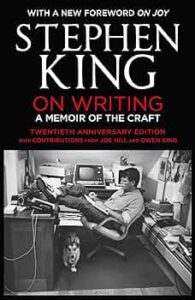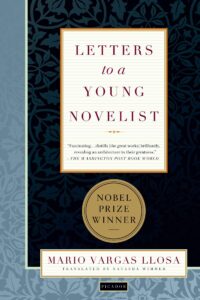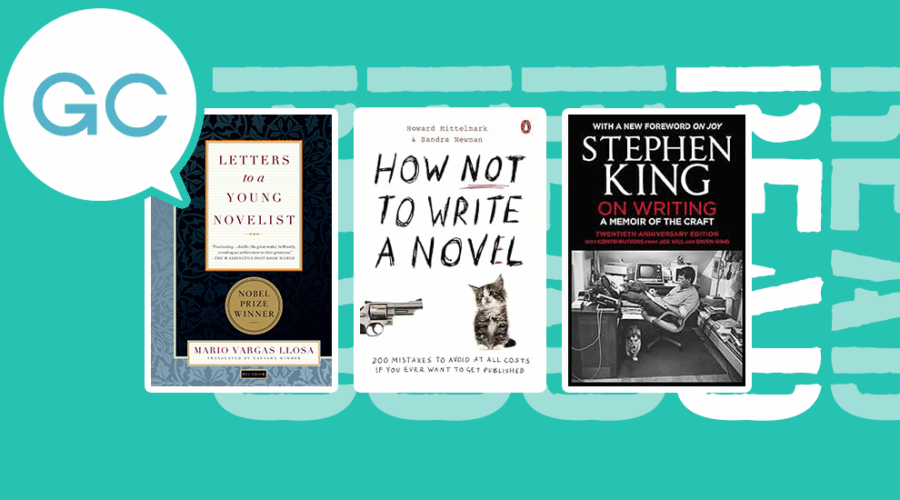For those curious about the art of storytelling, whether they are seasoned writers or just starting out, there are books that open the doors to the literary workshop and offer a glimpse into the creative process of great authors.
From intimate reflections to clever and practical guides, this month’s books invite us to see writing as a demanding yet profoundly liberating craft. These are texts that guide, teach and most of all, inspire those who believe that telling stories is a way to make sense of the world.
On Writing: A Memoir of the Craft, Stephen King
 Memoir
Memoir
Published: 2000
Pages: 1000
Author’s nationality: USA
Stephen King opens the doors to his creative process with an honest and straightforward account of his life as a writer.
From his early days juggling low-paying jobs to becoming one of the most widely read authors in the world, he shares how writing has accompanied him at every stage. Through personal anecdotes and difficult moments —such as the accident that nearly cost him his life — he reveals how discipline and a passion for words have been key to building his career.
With clarity and no sugar-coating, he offers practical advice on style, grammar, rhythm and editing. He also emphasizes the importance of writing every day and reading as much as possible.
His voice feels close, like a mentor who doesn’t idealize the craft but defends it fiercely.
Who’d like this?
This book is perfect for aspiring writers, seasoned authors in search of inspiration or curious readers who want a behind-the-scenes look at the creative workshop of one of the most influential names in contemporary literature.
Quotes
- “Books are a uniquely portable magic.”
- “You can, you should, and if you’re brave enough to start, you will.”
- “Write with the door closed, rewrite with the door open.”
Readers say
- “I’d say this book is a must have for every writer. Not only is King hilarious, but he unpacks his writing toolbox, showcasing his advice, methods, and even giving examples of edited scenes,” says an Amazon user.
- “Stephen King, perhaps unsurprisingly, really nails it with this book. Part memoir, part how-to this book is so readable and full of wisdom and actionable advice,” says an Amazon user.
How Not to Write a Novel, Howard Mittelmark and Sandra Newman
 Non-fiction
Non-fiction
Published: 2008
Pages: 272
Author’s nationality: USA
This book focuses on the most common mistakes made by those starting out in fiction writing. With over two hundred pages of fictional examples written for humorous effect, its authors — experienced in editing and teaching — clearly demonstrate what not to do if you want to write a publishable novel.
Organized into categories such as style, plot, characterization and structure, the book works as a reverse guide that teaches through failure.
Its irony helps make the learning process lighter and supports writers in avoiding the typical pitfalls before submitting a manuscript to an editor.
Who’d like this?
Ideal for aspiring novelists looking to improve their technique. It will also be enjoyed by those who appreciate editorial humor or curious readers interested in the most common missteps in the creative writing process.
Quotes
- “Remember: blonde, brunette, and redhead are not personality types.”
- “A good approach is to allow one dream per novel. Then, in the final revision, go back and get rid of that, too.”
Readers say
- “The information was extremely useful and I laughed out loud throughout,” says an Amazon user.
- “I loved the over-exaggerated examples – they made the author’s point(s) very clear,” says an Amazon user.
Letters to a Young Novelist, Mario Vargas Llosa
 Non-fiction
Non-fiction
Published: 1997
Pages: 144
Author’s nationality: Peru
A collection of twelve letters in which Mario Vargas Llosa, Nobel Prize in Literature, shares his most insightful reflections on the craft of writing fiction.
Throughout the book, the Peruvian author explores key concepts such as narrative voice, literary time, structure and the relationship between reality and fiction, drawing on examples from great novels of world literature.
The tone is warm, instructive and passionate. Beyond his formal explanations, the book makes it clear that writing, for Vargas Llosa, is a way to understand and transform life itself.
Who’d like this?
Ideal for literature students, aspiring writers or fans of Vargas Llosa’s work, this is a lucid and inspiring guide that encourages readers to think of storytelling as a demanding and fascinating art.
Quotes
- “That is one thing I am sure of amid my many uncertainties regarding the literary vocation: deep inside, a writer feels that writing is the best thing that ever happened to him, or could ever happen to him, because as far as he is concerned, writing is the best possible way of life, never mind the social, political, or financial rewards of what he might achieve through it.”
- “It is rare and almost impossible for a novel to have only one narrator.”
Readers say
- “It is an interesting vehicle for an instruction book and it works,” says an Amazon user.
- “A good examination of broad technique used by the great novelists,” says an Amazon user.

